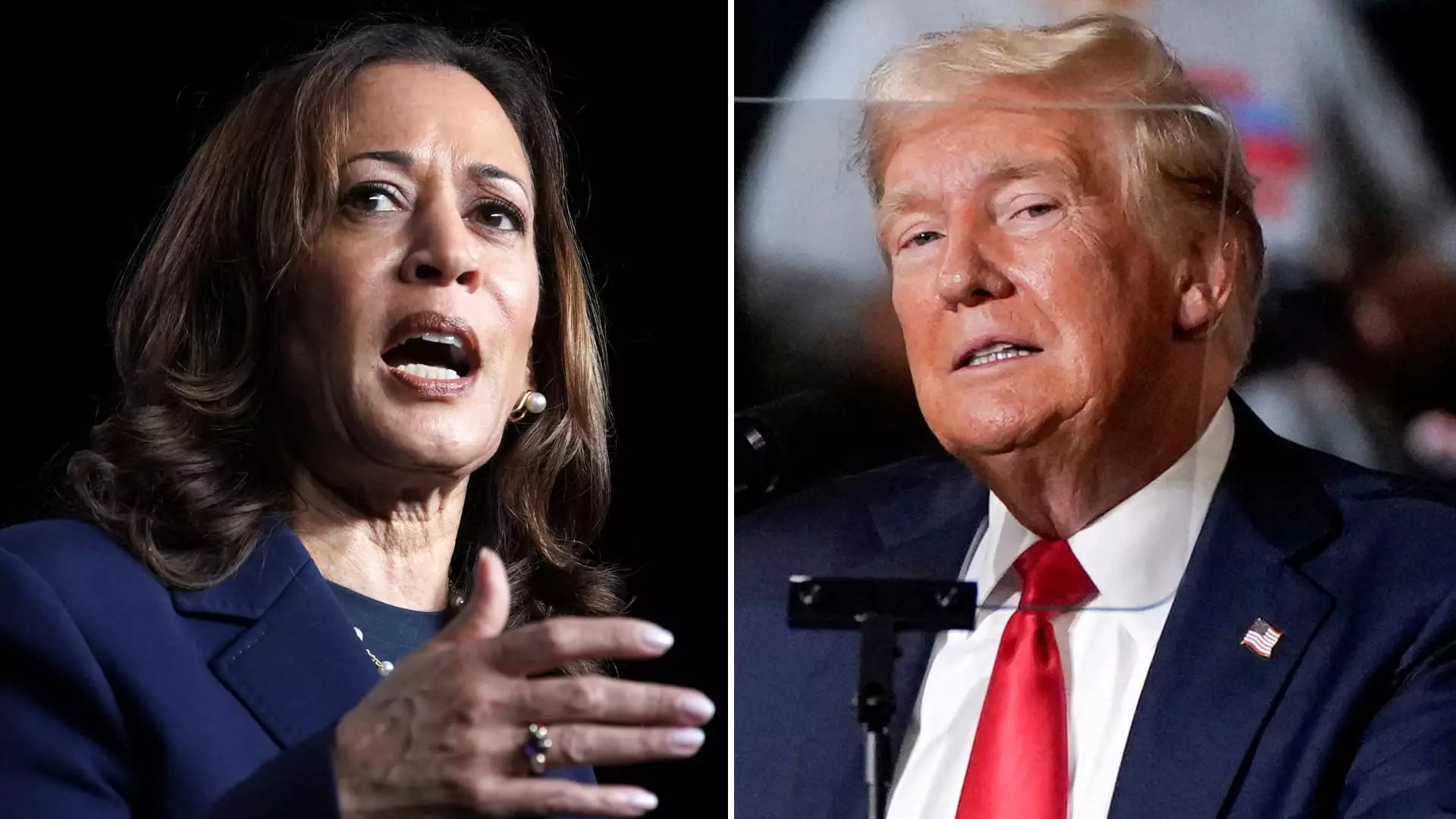The notion of eliminating taxes on tips for service and hospitality workers has recently gained traction among prominent political figures, including Vice President Kamala Harris and former President Donald Trump. Both have pledged to advocate for this cause during their campaigns, particularly in battleground states such as Nevada, where the hospitality sector is a significant employment source. At a recent rally in Las Vegas, Harris promised to uphold the rights of working families and eliminate the taxation on tips, setting the stage for an intriguing policy discussion that merits deeper scrutiny.
In the context of an election campaign, political pledges often reflect not only policies but also strategic maneuvers aimed at galvanizing voter support. In states like Nevada, where the hospitality industry employs a large segment of the workforce, the prospect of tax-free tips may resonate powerfully with voters who rely on these earnings. However, while the appeal is clear, the motivation behind such proposals raises questions about their viability and sincerity. Is this an effective means of addressing financial burdens for service workers, or merely a tactic to secure electoral gains?
The financial implications of eliminating taxes on tips are daunting. According to estimates from the Committee for a Responsible Federal Budget, such a move could result in a substantial deficit in federal revenues, potentially costing between $150 billion to $250 billion over the next decade. This raises significant concerns: Can such a policy be implemented sustainably without jeopardizing essential public services funded by tax revenues? Furthermore, experts in economics, including Yale University’s Ernie Tedeschi, have cautioned against the perceived effectiveness of this policy. They argue that it may not significantly alleviate the tax burden for low-income individuals, as the majority of workers in tipped positions are not representative of the broader low-income demographic.
Implementing a tax-free tip policy poses practical challenges that could complicate its execution. Harris has acknowledged the need for a legislative framework, meaning that passing such a proposal would require bipartisan support in Congress. Moreover, establishing clear and effective guidelines to ensure that the privilege of tax-free tips is allocated fairly will necessitate considerable legislative oversight. The intention to exclude high earners such as hedge fund managers from benefiting requires careful structuring to prevent loopholes that could undermine the policy’s core objectives. Without robust enforcement and delineation, this proposal risks becoming yet another instance where well-meaning policies falter in practical application.
The possibility of unintended consequences lurks in the shadows of this proposal. By promoting a system heavily reliant on tips, employers may prioritize gratuities over wages, leading to a warped employment landscape where service workers find themselves in increasingly precarious positions. Instead of raising base pay, employers might exploit the system, incentivizing tips without addressing the fundamental wage issues prevalent in the service sector. This potential shift poses a critical question: What happens to workers who rely on stability, equity, and predictable incomes? A system that encourages tipping could inadvertently lead to a deeper economic stratification within the low-income workforce itself.
Ultimately, the conversation surrounding tax-free tips reveals larger social and economic inequities. It challenges us to rethink who actually benefits from such initiatives and whether policymakers are addressing the right problems. Efforts to bolster the income of low-wage workers should perhaps focus less on tax exemptions for specific job structures and more on comprehensive reforms that guarantee living wages for all workers, regardless of their employer’s tipping practices.
As debates continue, stakeholders—ranging from political candidates to labor organizations—must engage with the complexities of these proposals. In doing so, they can better align their policies with the genuine interests of America’s working families, ensuring that initiatives genuinely uplift rather than inadvertently undermine the workforce they aim to support.


Leave a Reply